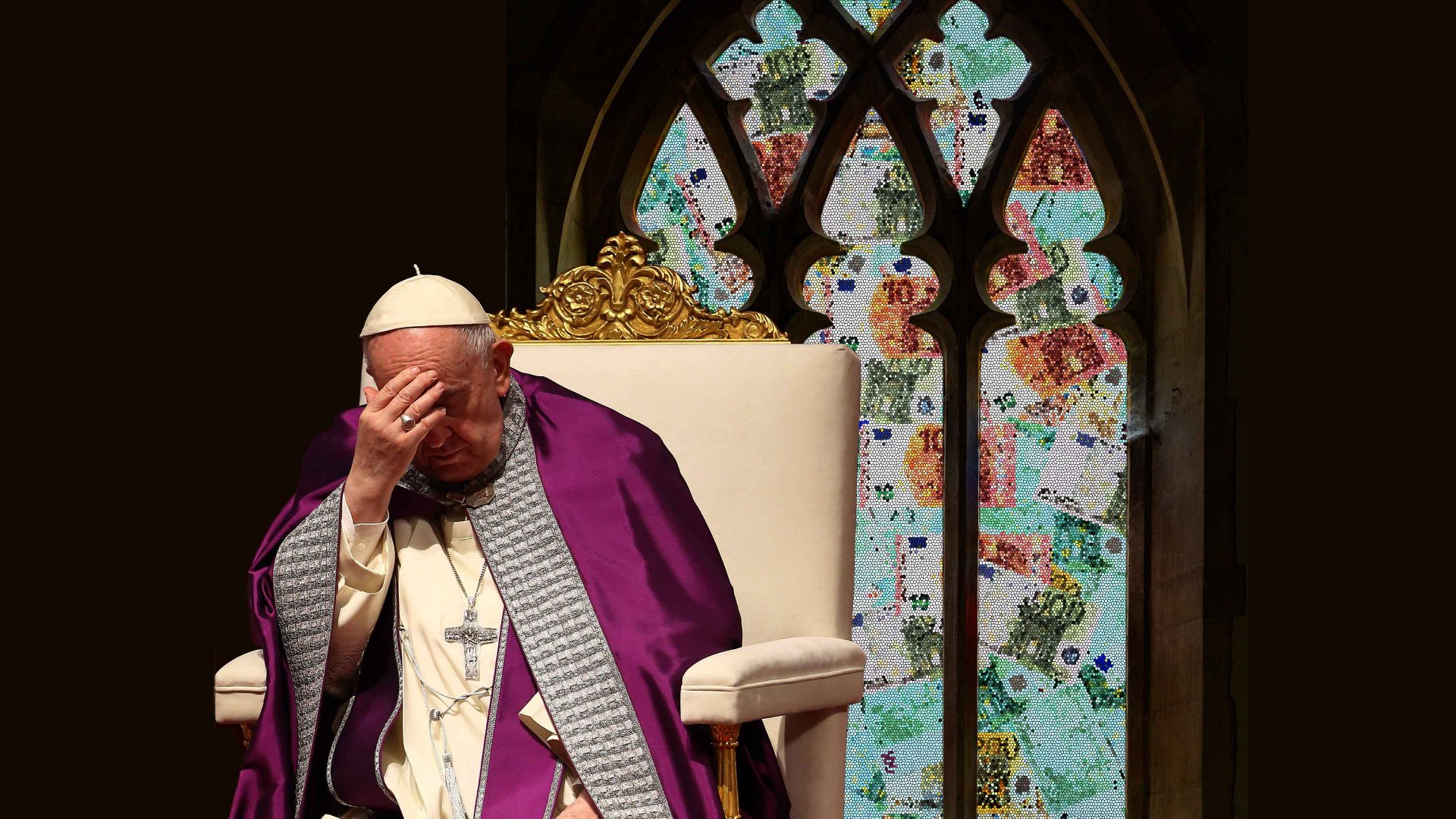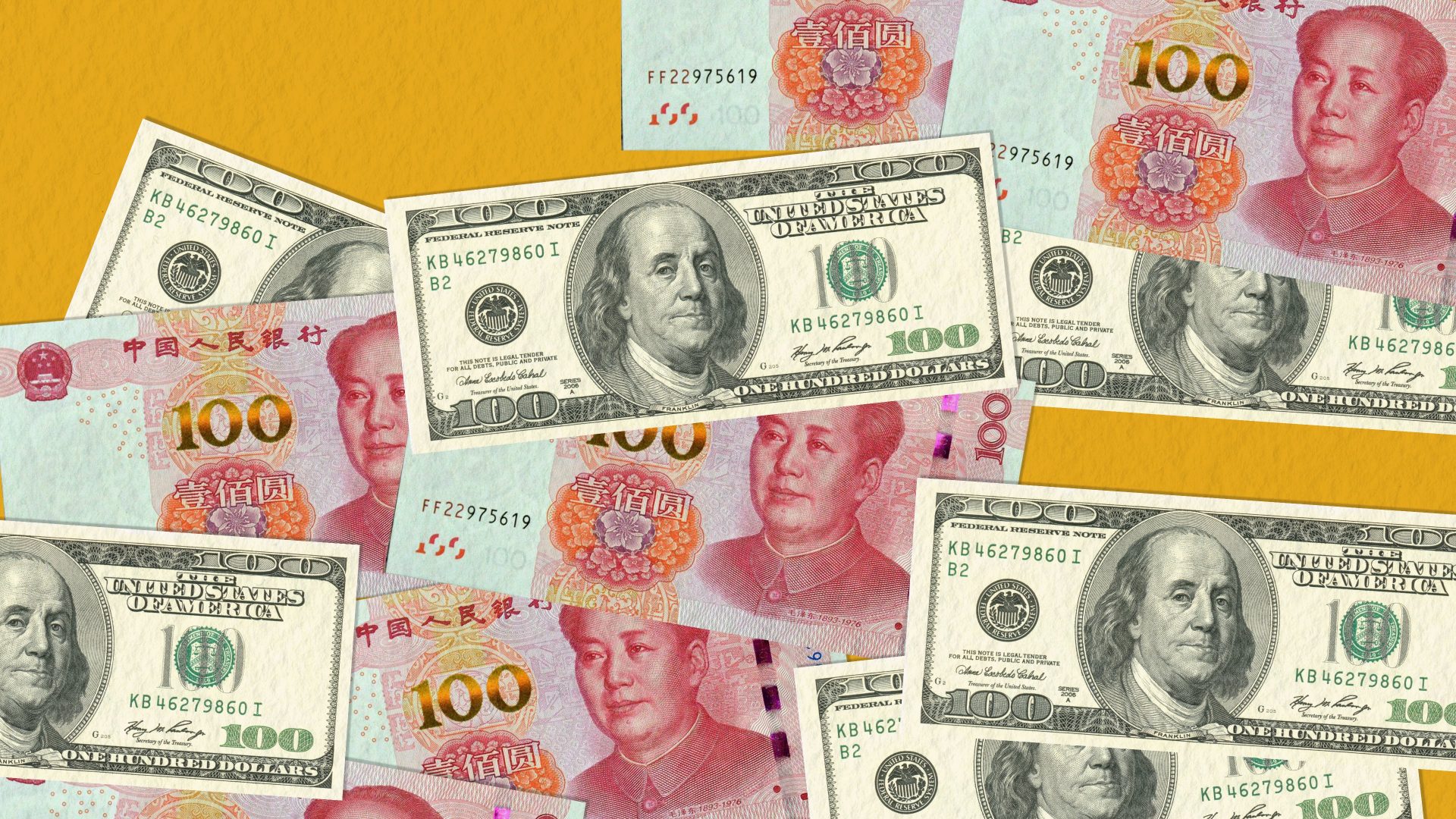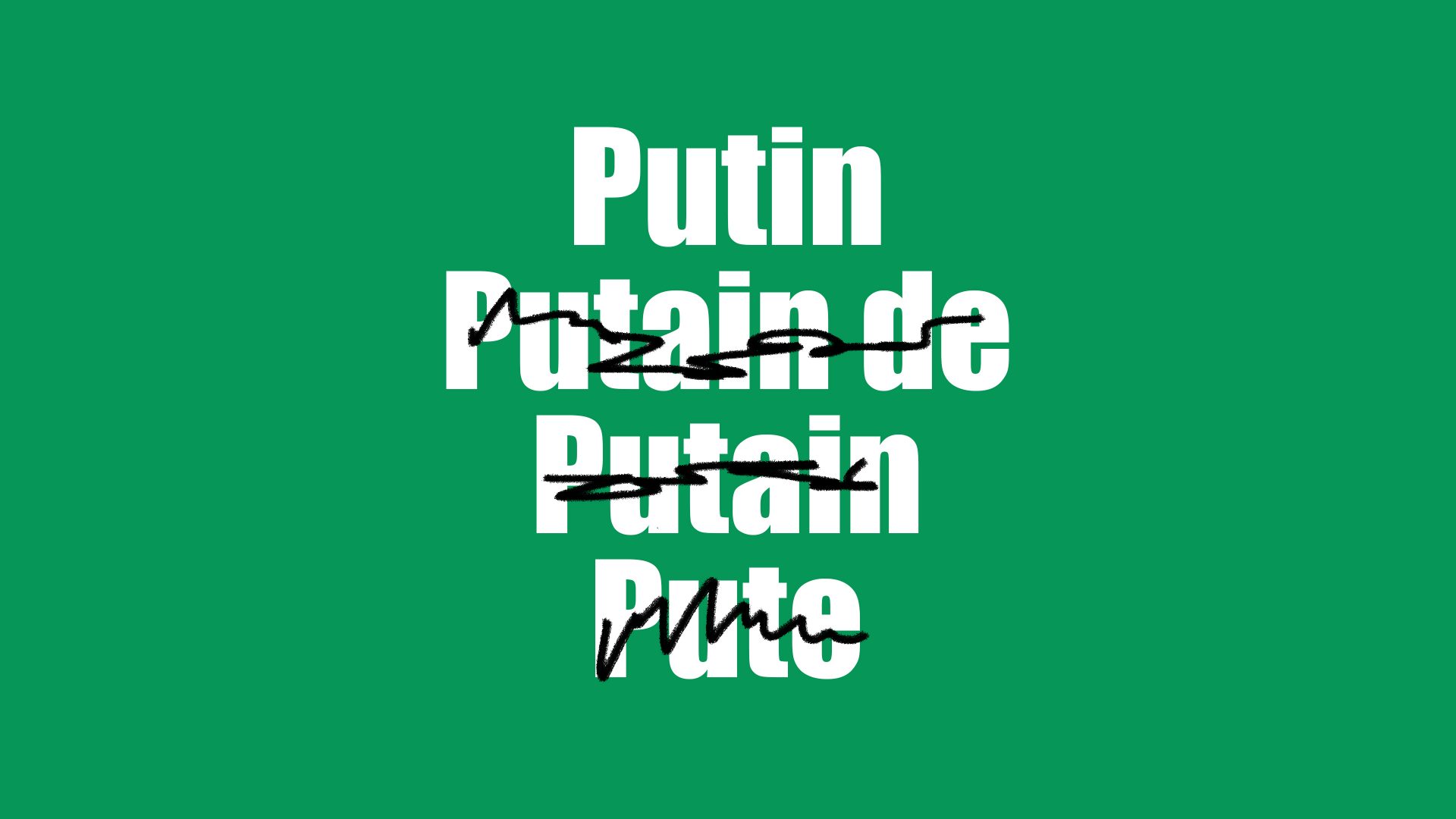Almost 300 years ago, Pope Clement XIII, a pious Dominican indifferent to matters temporal, handed over governance of the papal states to a favoured prelate. It would not end well: Niccoló Coscia abused his power and quickly amassed a personal fortune until a new pope charged him with a litany of monetary crimes, among them simony – the buying and selling of ecclesiastical privileges and funds.
When Cardinal Giovanni Angelo Becciu steps into the witness box in a Vatican tribunal next month he will make history, joining his less than illustrious predecessor to become only the second cardinal ever to be hauled to court to answer claims of financial corruption.
Becciu was sacked by Pope Francis in September 2020 after Vatican prosecutors investigating the powerful Secretariat of State, his former department, presented a file bulging with evidence against him, including the transfer of hundreds of thousands of euros into companies owned by family members.
In July last year, after a long and complex investigation into a web of murky deals and dodgy middlemen, Italian authorities charged the disgraced cardinal, the highest-profile of 10 defendants, with a raft of allegations of abuse of office, embezzlement, and obstruction of justice. An outraged Becciu has vowed he is innocent, the victim of a “grotesque and vulgar massacre” at the hands of the media, and insists he will clear his name.
At the heart of the mega-trial is a paper trail that shows millions in charitable donations from the faithful, held in a fund known since the eighth century as Peter’s Pence, were funnelled into speculative commercial investments, including the acquisition of a £200m London property, 60 Sloane Avenue, in Knightsbridge. A former Harrods showroom, it was to be converted into luxury apartments until the deal turned sour, forcing the Vatican to pay out millions to extricate itself, only to sell at a £100m loss.
The investigation by prosecutors has required examination of thousands of documents, analysis of electronics sequestered from suspects and painstaking comparisons between statements provided by a long line of witnesses. Among the extraordinary cast of characters charged along with the cardinal are Gianluigi Torzi, the broker who bought the London building for the Vatican then demanded a huge payment to hand over the keys, and fund manager Enrico Crasso, who used church money to finance Hollywood films, including the Elton John biopic Rocketman – not to mention a highway in North Carolina that turned out not to exist.
Then there is Cecilia Marogna, a self-described “geopolitical security analyst” who hailed from Becciu’s home island of Sardinia and offered the cardinal and his secretariat “intelligence” services, and Raffaele Mincione, who advised the Vatican to underwrite a vast slab of the fund that owned the London property – and promptly used the money to finance his own speculative investments.
Lawyers for several of the accused have spent months arguing the legality of the investigation. There have been accusations of spying and counterclaims of widespread illicit bugging and a glorious moment when it was revealed that Becciu’s own deputy, Monsignor Alberto Perlasca, had turned to become the prosecutors’ star witness. Demands that his recorded interviews be handed over to the defence legal teams resulted in the prosecution warning that if they did so, they’d surely be leaked to Italian media. And sure enough, that’s exactly what has happened as excerpts of the tapes dribbled out to grab headlines while prosecutors continued with their work.
Despite the legal theatrics, however, even seasoned Vatican observers were surprised on March 2 when Judge Giuseppe Pignatone threw out all pre-trial motions seeking dismissal of the charges, paving the way for the trial to commence in earnest.
“Everyone expected the entire case to collapse like a soufflé,” Dr Ed Condon, canon lawyer and founder of The Pillar, with its news and analysis of the Catholic church, told The New European this week. “But it cannot. A Rubicon was crossed with the indictments last year… the revelations of Becciu and Perlasca, a long charge sheet, a rolling series of hair-raising revelations and accounts of financial processes nobody would recognise, not even in a Dan Brown novel… once out, they must be resolved.” At one point, added Condon, there was even talk of boxes of gold and silver coins being brought up from the cellars of the Vatican bank: “The credibility of the Vatican as a financial actor on the international scene is on the line and there is a lot more at stake here than a few priests.”
A cardinal in the dock is a spectacular way to turn the spotlight on to the lack of transparency and corruption that has characterised Catholic church finances for so long. However, the reality is that it is not just the Vatican as an institution that’s on the line now but Pope Francis’s reform credentials themselves.
Nine years have passed since a conclave of 115 cardinal electors sent a puff of white smoke above the Sistine Chapel to announce “Habemus Papam!” installing the Argentinian Jesuit, Jorge Mario Bergoglio, in the Holy See. Charismatic, populist, energetic – seemingly the antithesis of his cerebral and insular predecessor, Benedict XVI – Francis signalled an appetite for radical change from day one.
He quickly flagged a re-examination of previously taboo subjects – from how to deal with holy communion for divorced Catholics to procreation issues and same-sex relationships – and acknowledged publicly the impact of climate change on the developing world. His first “green” encyclical, Laudato Si, subtitled “On Care for Our Common Home”, reverberated around the world.
While it was Benedict XVI who seeded the financial reform process, Pope Francis followed up swiftly, aligning the Vatican Bank with the Council of Europe’s anti-money-laundering rules and creating a new secretariat for the economy to supervise operations, ruffling feathers by diluting the influence of Eurocentric (but principally Italian) cardinals inside the top echelons of the hierarchy. He appointed a brusque outsider, Australian Cardinal George Pell, to lead the overhaul of the Holy See’s investment arms and its scandal-riddled bank and infuriated the old guard even further by appointing the Vatican’s first independent auditor general, Dutch-born Italian and former Deloitte president, Libero Milone, as financial watchdog.
But this pope, like his beleaguered predecessor, has also come up against ferocious internal resistance to change – so much so that he himself observed wryly that “reforming Rome is like cleaning the Sphinx of Egypt with a toothbrush”. That pointed appraisal was delivered just a few days before Christmas in 2018, while delivering his traditional season’s greetings to the Curia – the Vatican’s central bureaucracy – and reportedly elicited no laughter, just a stony silence.
By then, his two appointed financial tsars, Pell and Milone, had been forced out, their attempts to haul the Holy See’s antiquated and sclerotic financial systems into the 21st century stymied from the inside. The auditor general had been threatened with spying charges and embezzlement and was made to quit by the now-disgraced Cardinal Becciu, before being marched out bodily by the Vatican guard, no less.
Pell would be summoned back to Australia just one week later to answer historical sex charges for which he would be found guilty and imprisoned before the high court, a conviction that was then overturned on appeal. (Prosecutors will undoubtedly grill Becciu on his mysterious payment of £1.3m to the Melbourne office of Neustar – a tech company linked to an emerging US political scandal over alleged Russian interference in the US general election, at the same time as Pell’s ignominious return.)
There is little doubt that Pell and Milone, despite enduring years of stonewalling and interference seemingly orchestrated by Becciu, had come within a whisker of nailing their early, if vague suspicions that hundreds of millions of euros belonging to the Vatican may be contained in secret accounts held by two private Swiss banks. But internal efforts to hijack reform would not stop with their ousting: Pell’s successor, Father Juan Antonio Guerrero Alves, was reportedly also frozen out, his every demand for information greeted with blatant evasion or silence – until Pope Francis, faced with incontrovertible evidence, forced Becciu to resign.
Since then, the Pontiff has quietly continued with his agenda, ensuring a recalcitrant secretariat of state has at last been made to hand over control of its investments to APSA, the Vatican’s sovereign wealth manager, and on March 19, he issued his long-awaited blueprint for reform, in effect a new constitution for the Catholic church.
Known as Praedicate Evangelium (Preach the Gospel), it replaces Pastor Bonus (The Good Shepherd) issued by John Paul II in 1988 and is only the fifth time in 500 years that such a task has been undertaken.
Perhaps the most significant reform lies with the decision to open the most powerful, senior roles in the Roman Curia to the laity – both male and female – and the formal incorporation of a group of independent experts set up by Francis in 2013 to advise him on how to stamp out abuse in the Church into the Dicastery for the Doctrine of the Faith, the Vatican arm now responsible for handling reports of priestly paedophilia.
Theoretically, the Curia reforms mean that the secretary of state, the most senior official after the pope, could be a lay woman as long as she was baptised a Catholic and “well qualified”, possibly the pope’s way of putting a further rocket under an all-male bureaucracy of careerists whom he has also accused of “malicious resistance” to his plans.
It takes nine months for a woman to produce a baby. It took nine years for the Vatican to birth a new document reforming the Curia,” quipped Jesuit Father Dr Thomas Reese in the National Catholic Register. “Perhaps the Vatican would act more quickly if there were more women working there.”
Seasoned Vatican watchers acknowledge that Pope Francis’s original priority of curial reform has, at times, flowed in and out of favour and force, a little like the tide. The low-water mark was reached with the sacking of Milone and departure of Cardinal Pell, says lawyer Condon, but now, the reforming flood seems to have come back in with a vengeance.
Certainly, stripping the powerful secretariat of state – created in the 15th century – of its assets, investments, and control of papal funds a year before issuing his formal reform document suggests an invigorated appetite for change and will be seen as historic, at least in Vatican terms. And for all the sound and fury in the Catholic blogosphere and editorial pages suggesting papal interference to ease the passage of the prosecutors, Condon argues that Pope Francis has behaved with scrupulous attention to the law, stepping in only when officials – Becciu prime among them – attempted to use Vatican state secrecy laws in order to hide from answering questions at trial.
On March 30, in a surprise move, the pope waived state secrecy laws, seemingly well aware that his credentials as a reformer now appear to hang on the successful completion of this trial, and the credibility of its outcome. Certainly, he has pressed on with a raft of policy reform quietly, behind the scenes, even as the investigation and trial have been under way. Condon suggests that this is a clear demonstration of his desire for people – Catholics and European financial regulators both – to see that some pretty tough lessons have now been learned.
“Of course, the real lesson which we are taking away from the Vatican trial’s hearings so far, and which many in the Vatican have known all along, is that in the Curia, personnel are the only policy that really matters,” adds Condon.
Pope Francis might well leave an immaculate set of modernised policies behind when he leaves office, but if he cannot find officials he can trust, he may go down as a reforming pope in theory only.
Paola Totaro is an Italian-Australian journalist based in London and specialising in European affairs, politics, social policy and the arts



